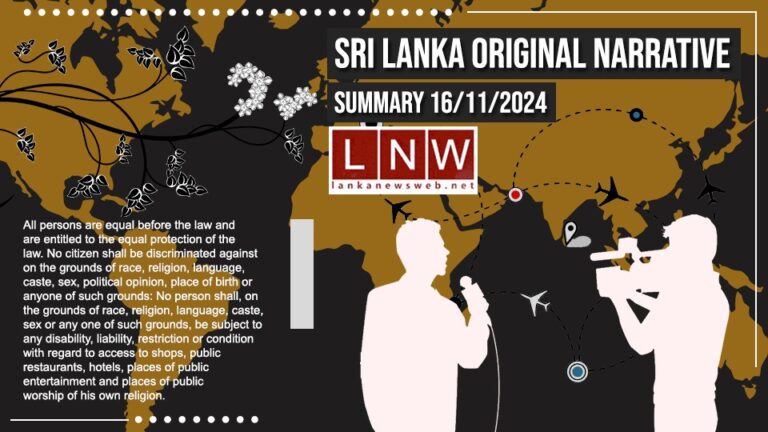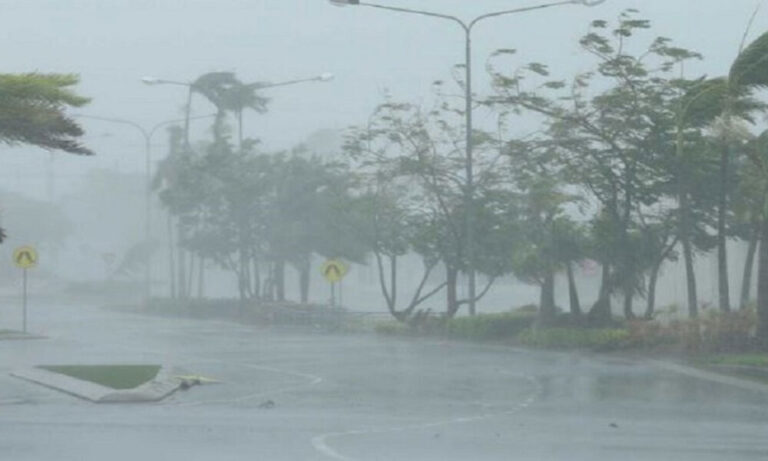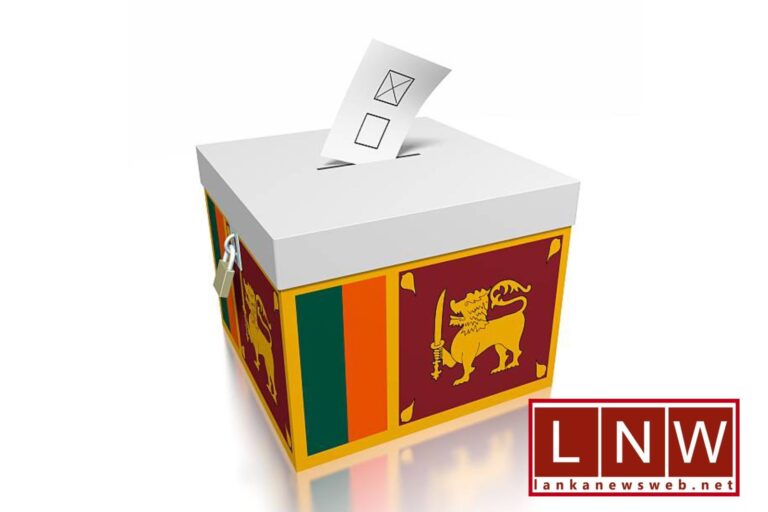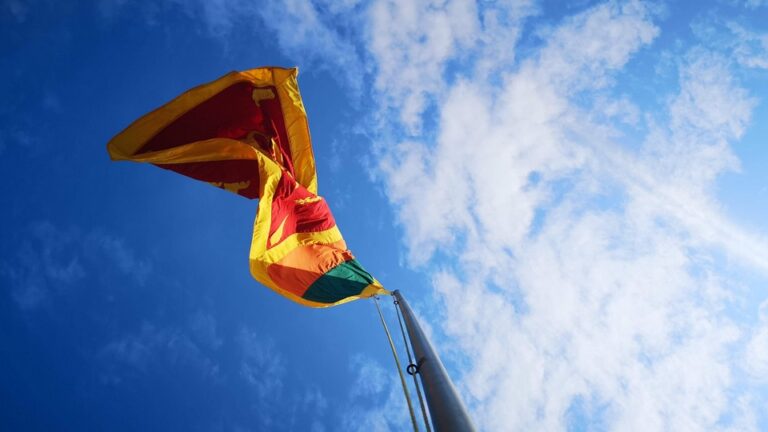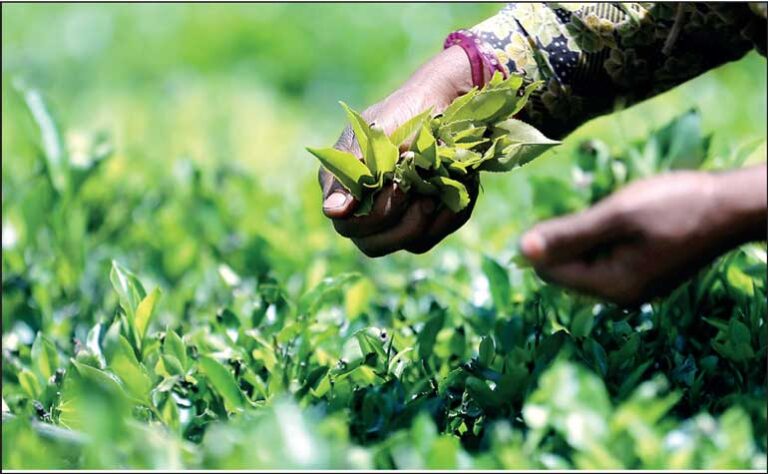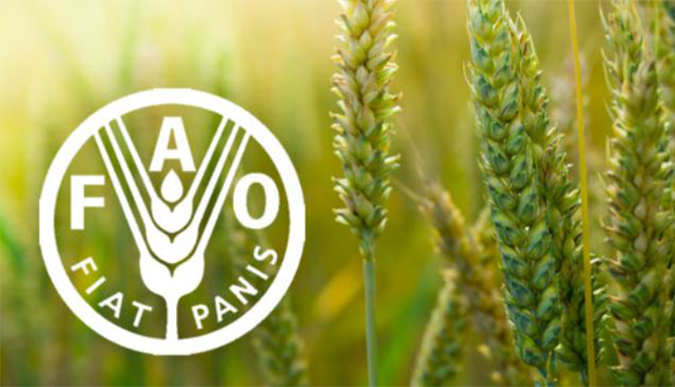- The National People’s Power (NPP) has already secured a two-thirds majority in Parliament after winning a total of 123 seats in the House in the 2024 General Election. NPP had confirmed its majority power in parliament, which it sought during the election campaigning, after winning a whopping 16 out of the 19 available seats in the Gampaha District.
- National People’s Power (NPP) Gampaha District Team Leader Vijitha Herath has received the highest number of preference votes in the history of Sri Lanka’s parliamentary polls with an unprecedented 716,715 votes polled at the 2024 General Election.
- Several prominent Ministers and Members of Parliament of the former government have already lost their seat, as the results of the 2024 General Election are being released. The former MPs who have already been ousted from the 10th Parliament are as follows;Kanchana Wijesekera – Matara, Nipuna Ranawaka – Matara, Mahinda Amaraweera – Hambantota, Manusha Nanayakkara – Galle, Ramesh Pathirana – Galle. Shasheendra Rajapaksa – Monaragala, Asanka Navarathna – Kurunegala, Anura Priyadharshana Yapa – Kurunegala, Johnston Fernando – Kurunegala, Shantha Bandara – Kurunegala, D. B. Herath- Kurunegala, Pramitha Tennakoon – Matale
- Sri Lanka Podujana Peramuna (SLPP) National Organizer Namal Rajapaksa while conceding the defeat at the Parliamentary Election yesterday congratulated President Anura Kumara Dissanayake on the 2024 Parliamentary Election which was held on Thursday. Rajapaksa in a post on X said that the NPP’s victory at the parliamentary election marks a new path and a fresh approach chosen by the people.
- Executive Director of the Institute for Democratic Reforms and Electoral Studies (IRES) Manjula Gajanayake said that the result achieved in Thursday’s Parliamentary Election represents the electoral mandate of the March 2022 youth uprising known as the ‘Aragalaya’.
- United National Party (UNP) Chairman Vajira Abeywardena stated yesterday that, for the first time, the people in the North have shown unprecedented trust in a party from the South, which he views as a positive development. “This is a very special occasion in the election history of the country. The people in the north have placed trust in a political party in the South even though different political parties with various forces are operating in the North and East, he said.
- The new government has decided to conduct audits on all State institutions following its establishment. These audits aim to thoroughly investigate alleged fraud and corruption that may have occurred during previous administrations.
- The Samagi Jana Balawegaya (SJB) while acknowledging the decision made by the people yesterday said that the party is ready to give its fullest co-operation to the government in the interest of the people and the country. SJB Chairman and former Minister Imtiaz Bakeer Markar said the people have given an unprecedented mandate to the National People’s Power to fulfill the commitment made to them during the election campaign.
- Janatha Vimukthi Peramuna (JVP) General Secretary and National People’s Power (NPP) founding member Tilvin Silva yesterday said, with a huge mandate, the people of Sri Lanka have entrusted his party with a great responsibility and assured that the NPP will live up to people’s expectations.
- Sri Lanka has made a strong impression at the ongoing 6th Carrom World Cup in the United States, securing two bronze medals in the Men’s and Women’s Doubles events. In the Men’s Doubles, Sri Lanka’s Shaheed Hilmy, the team captain, and Anas Ahamed clinched the bronze after a close contest. Both players are former Royal College Colombo students, with Hilmy also representing the Sri Lanka Air Force Sports Club.
Sri Lanka Original Narrative Summary: 16/11
WEATHER FORECAST FOR 16 NOVEMBER 2024
The general public is kindly requested to take adequate precautions to minimize damages caused by lightning during thundershowers as the atmospheric conditions are favorable further for afternoon thundershowers in most parts of the island.
Showers or thundershowers will occur in the most parts of the island after 2.00 p.m.
Showers may occur at few places in the Northern and Eastern provinces and in Hambantota district during the morning too.
Fairly heavy showers about 75 mm are likely at some places in Western, Sabaragamuwa, Central and Southern provinces.
Misty conditions can be expected at some places in Western, Sabaragamuwa, Central and Uva provinces and in Galle and Matara districts during the morning.
The general public is kindly requested to take adequate precautions minimize damages caused by temporary localized strong winds and lightning during thundershowers.
Preferential Vote Results – Anuradhapura and Kalutara Districts
The preferential vote results of the Anuradhapura District in the 2024 General Election have been released.
NPP’s Wasantha Samarasinghe has polled the highest number of preferential votes in the Anuradhapura District.
Rohana Bandara and Suranga Rathnayaka have obtained the highest number of preferential votes to secure two parliamentary seats for the SJB in the district.
National People’s Power (NPP)
1. Wasantha Samarasinghe – 251,639
2. Sena Nanayakkara – 86,150
3. Susil Ranasinghe – 72,508
4. Susantha Kumara – 71,695
5. Bhagya Sri Herath – 63,551
6. P.D.N.K. Palihena – 52,507
7. Thilina Samarakoon – 49,730
Samagi Jana Balawegaya (SJB)
1. Rohana Bandara – 46,399
2. Suranga Rathnayaka – 24,348
NPP’s Nalinda Jayatissa has polled the highest number of preferential votes in the Kalutara District.
Ajith Perera and Jagath Vithana have obtained the highest number of preferential votes to secure two parliamentary seats for the SJB in the district, while Rohitha Abeygunawardhana secured a seat for the New Democratic Front (NDF).
National People’s Power (NPP)
1. Nalinda Jayatissa – 371,640
2. Nilanthi Kottahachchi – 131,375
3. Nihal Abeyasinghe – 96,721
4. Sanjeewa Ranasinghe – 78,832
5. Dhanushka Ranganath – 74,502
6. Oshani Umanga – 69,232
7. Chandima Hettiaratchi – 50,509
8. Nandana Padmakumara – 50,452
Samagi Jana Balawegaya (SJB)
1. Ajith Perera – 43,975
2. Jagath Vithana – 43,867
New Democratic Front (NDF)
1. Rohitha Abeygunawardhana – 10,204
Preferential Vote Results – Monaragala District
The preferential vote results for the Monaragala District have been announced, with the National People’s Power (NPP) securing the majority of votes and seats.
NPP’s R.M. Jayawardena has emerged as the top preference vote recipient in the district, while H.M. Dharmasenafrom the Samagi Jana Balawegaya (SJB) has secured the sole seat for the SJB.
National People’s Power (NPP) – 5 Seats
- R.M. Jayawardena – 105,107 votes
- Ajith Priyadarshana – 54,044 votes
- Chathuri Gangani – 42,930 votes
- Ruwan Wijeweera – 40,505 votes
- Sarath Kumara – 39,657 votes
Samagi Jana Balawegaya (SJB) – 1 Seat
- H.M. Dharmasena – 20,171 votes
Final Election Results – Sri Lanka 2024 General Election
The National People’s Power (NPP) has secured a decisive victory, winning a total of 159 seats in Parliament after polling over 6.8 million votes, which is 61.56% of the total votes counted. The Samagi Jana Balawegaya (SJB)becomes the main opposition party, having polled over 1.9 million votes (17.66%) and winning 40 seats.
Seat Distribution and Vote Count:
- National People’s Power (NPP) – 6,863,186 votes (159 seats)
- Samagi Jana Balawegaya (SJB) – 1,968,716 votes (40 seats)
- Ilankai Thamil Arasu Kachchi (ITAK) – 257,813 votes (8 seats)
- New Democratic Front (NDF) – 500,835 votes (5 seats)
- Sri Lanka Podujana Peramuna (SLPP) – 350,429 votes (3 seats)
Preferential Vote Results: Vanni District
The National People’s Power (NPP) has won two (02) seats in the Vanni District under the Preferential Voting System.
Preferential Vote Results:
- National People’s Power (NPP) – 2 seats
- Selvathambi Thilakanathan – 10,652 votes
- Arumugam Jegadishwaran – 9,280 votes
- Ilankai Thamil Arasu Kachchi (ITAK) – 1 seat
- Thurairasa Ravikumar – 11,215 votes
- Samagi Jana Balawegaya (SJB) – 1 seat
- Rishad Bathiudeen – 21,018 votes
- Democratic Tamil National Alliance (DTNA) – 1 seat
- A. Adaikkalanathan – 5,695 votes
- Sri Lanka Labour Party (SLLP) – 1 seat
- Cader Masthan – 13,511 votes
Preferential Vote Results: Trincomalee and Jaffna Districts
The National Peoples’ Power (NPP) has won two (02) seats in the Trincomalee District under the Preferential voting system.
The preferential votes for the Trincomalee District are as follows;
NPP – 02 seats
Arun Hemachandra – 38,368 votes
A.G.R. Priyasanjana – 25,814 votes
SJB – 01 seat
Imran Maharuf – 22,779 votes
ITAK – 01 seat
K.S. Kugadasan – 18,470 votes
The National Peoples’ Power (NPP) has won three (03) seats in the Jaffna District under the Preferential voting system.
The preferential votes for the Jaffna District are as follows;
NPP – 03 seats
Karunanathan Ilankumaran – 32,102 votes
Sri Bhavanandaraja Shanmuganathan – 20,430 votes
Rajeewan Jayachandramurthy – 17,579 votes
ITAK – 01 seat
S. Sridharan – 32,833 votes
ACTC – 01 seat
Gajendrakumar Ponnambalam – 15,135 votes
IG 17 – 01 seat
Ramanathan Archuna – 20,487 votes
Madulkelle Tea and Eco Lodge in Kandy steps into Agro-Based Exports
In a pioneering initiative in the Sri Lankan hospitality industry, Kandy-based Madulkelle Tea and Eco Lodge Chairman Philippe Gomez is diversifying into exports of agro-based value additions manufactured from the produce at his hotel.
Gomez, a French national, said that they have so far planted 4,500 vanilla trees, 4,000 coffee plants, and 1,000 pepper plants. More than half of the land of the hotel has been given for this, while it is planned to be extended by another six acres as an export-oriented venture.
This is a project that began some time ago but is now ready for more structured exports, particularly targeting the European market from early next year.
They also aim at supporting the local community with an out-grower system whereby local products are planning to enter into the export market.
The company has also hired undergraduate Mahisha Rathnakumara from Wayamba University’s Faculty of Agriculture and Plantation Management in its pursuit of developing organic farming.
In Madulkelle Tea and Eco Lodge, he will be involved with landscape designs, cultivation of tea and vanilla and promoting the eco-friendly concept.
Gomez first visited Sri Lanka during a European tour over four decades ago. He fell in love with the country then and had since been coming back repeatedly.
He was a frequent visitor, more so during the height of the LTTE War, and found that the country was seriously lacking in good boutique hotels. Hence, he purchased a 24-acre tea estate and introduced the concept of “glamping” to Sri Lanka.
This luxury boutique hotel consists of 19 shelters and is able to accommodate 45 guests in total. It successfully integrates both French and local tastes into its design by having a kitchen, bar, dining area, and reception.
It contains an infinity pool that depicts a panoramic view of the Knuckles Mountain, a modern gym, spa, and helipad for high-end clients.
In its effort to assist the community in the area, Madulkelle Tea and Eco Lodge has set aside space to sell artefacts by local artisans. Thissa Ruberu, General Manager, formerly a member of the Chamber administration said,
“EU, UK, and Australian clients from the high-end segment patronize the hotel in large numbers.” The lodge provides facilities for bespoke menus, private dining areas, and special nature trail attractions, which are sought after.”Madulkelle Tea & Eco Lodge Ventures into Agro-Based Exports and Luxury Hospitality
Netherlands Strengthens Agricultural and Educational Collaboration with Sri Lanka
The Government of the Netherlands pledged itself to support Sri Lanka’s agriculture, education, tourism, and public sector development with technical knowledge and funding.
This was announced during a meeting at the Presidential Secretariat between a Dutch delegation led by Deputy Ambassador Iwan Rutjens and Secretary to the President Dr Nandika Sanath Kumanayake.
Pivotal in this cooperation is the involvement of Wageningen University & Research, known for seven years running as the most sustainable university in the world.
It plans to collaborate with main Sri Lankan stakeholders active in agriculture and agro-ecotourism.
The partnerships will be utilized to find opportunities and challenges within the sector while accessing funds available for forestry and sustainable food systems.
Key financial partnerships are foreseen with entities such as the Asian Development Bank and the World Bank, in addition to investments from the private sector.
The Dutch delegation visiting them displayed an eagerness to collaborate with Sri Lanka and was extended Technological and Financial support.
A few of the notable all members of the delegation present were but not limited to Business Management Professor Wilfred Dolfsma from Wageningen University, Asia Account Manager Kalyan Chakravarthy Guntuboyina, Chair for Cultural Geography Research Group Edward Huijbens, Ricardo Abdoel – Director RCI ASPIRE/u, Control-Care representative Shamoe Lakhisaran with Professor Ranil De Silva from the University of Sri Jayawardenepura.
Netherlands Ambassador to Sri Lanka Bonnie Horbach, on her part, focused on the demand from world markets for Sri Lankan agriculture produce, calling upon the Sri Lankan private sector and the government to capitalize on these world markets.
The Dutch would support them in doing so. The meetings also revolved around advanced Dutch agriculture technology and ways of increasing training.
Special attention was given to the courses for trainers that had already been conducted by the Faculty of Agriculture at the University of Peradeniya, which had already benefited from Dutch support. It is planned to widen these courses and increase student participation.
He further told the Ambassador that Sri Lanka was losing an opportunity to be more engaged in the ornamental flowers market.
Whereas Kenya dominates flower export into the Netherlands, Sri Lanka can exploit this lucrative market, provided the right conditions for flower cultivation exist in the country. She said she was sad Sri Lanka imports flowers when it is ideally suited for local cultivation.
Besides, the Netherlands is aware of the international standing of Sri Lankan spices such as pepper, coffee, cinnamon, and cardamom, which are considered among the best in the world.
The Ambassador thus called upon Sri Lanka to have more production of spices for export since the interest in Sri Lankan spices began for the Dutch during the 16th and 17th centuries. She thus said that she was glad to see these products maintain their position at an international level for many centuries.
Matale District preferential vote results released
The National People’s Power (NPP) has won four (04) seats in the Matale District under the Preferential Voting System.
Preferential Vote Results:
- National People’s Power (NPP) – 4 seats
- Gamagedara Dissanayake – 100,618 votes
- Sunil Biyanvila – 56,932 votes
- Deepthi Wasalage – 47,482 votes
- Dinesh Hemantha Perera – 43,455 votes
- Samagi Jana Balawegaya (SJB) – 1 seat
- Rohini Kavirathne – 27,945 votes

